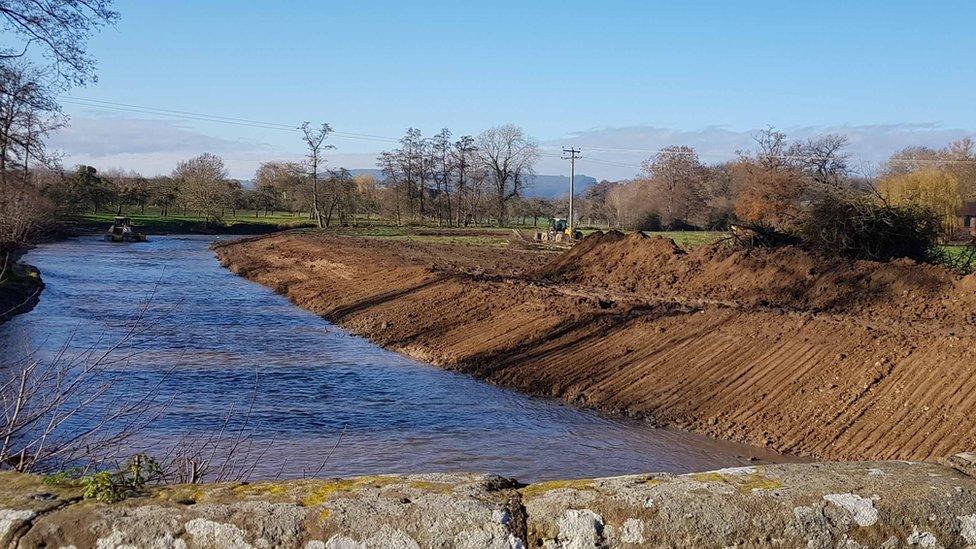Farmer who ripped up trees was fixing storm damage, court hears
- Published
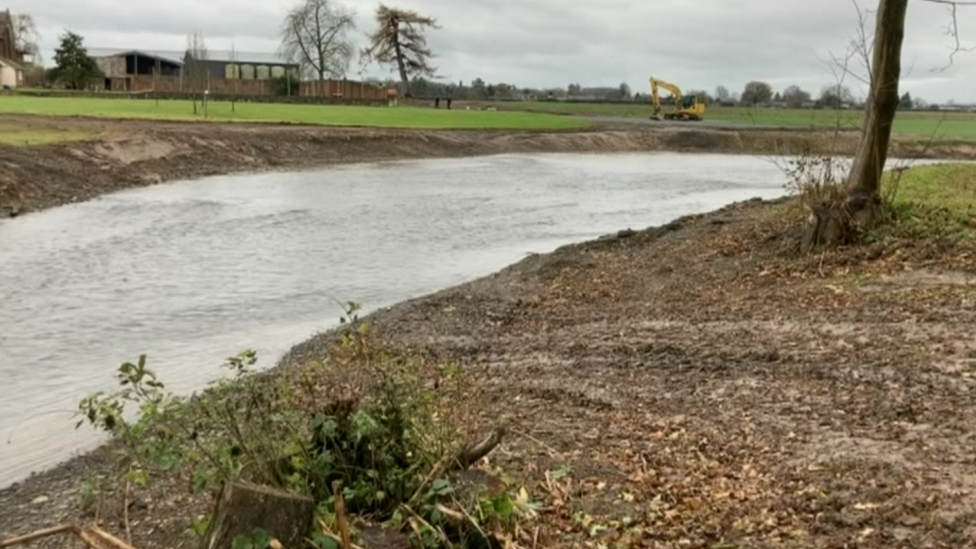
John Price, from Day House Farm in Kingsland, spent more than 200 hours remodelling the River Lugg, magistrates heard
A man who ripped up trees from the banks of one of the UK's most important salmon rivers believed he was fixing damage caused by storms, a court heard.
John Price also admitted removing gravel from the River Lugg in Herefordshire and failing to stop pollution entering the waterway.
The 68-year-old, of Day House Farm, Kingsland, pleaded guilty to seven charges relating to his activities.
He is due to be sentenced by Kidderminster magistrates on Thursday.
Price owns land either side of the Lugg, the court was told.
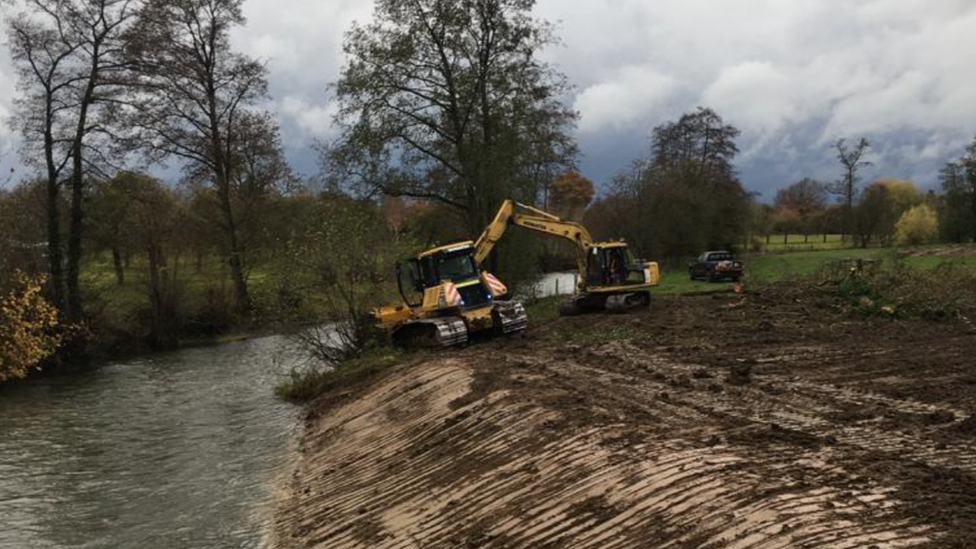
The farmer hired diggers and bulldozers to carry out the work
On the second day of a three-day sentencing hearing, magistrates were told of statements from villagers and friends, who said Price had been "very generous" and donated money to the Kingsland Millennium Green and Luctonians Sports Club.
Adam Farrer, representing the defendant, told the court the Herefordshire farmer has assets valued at between £21m and £25m.
Mr Farrer said his client was "obsessed with his farm", but he does not have a large income and the pressure of the case had led to him and the business underperforming.
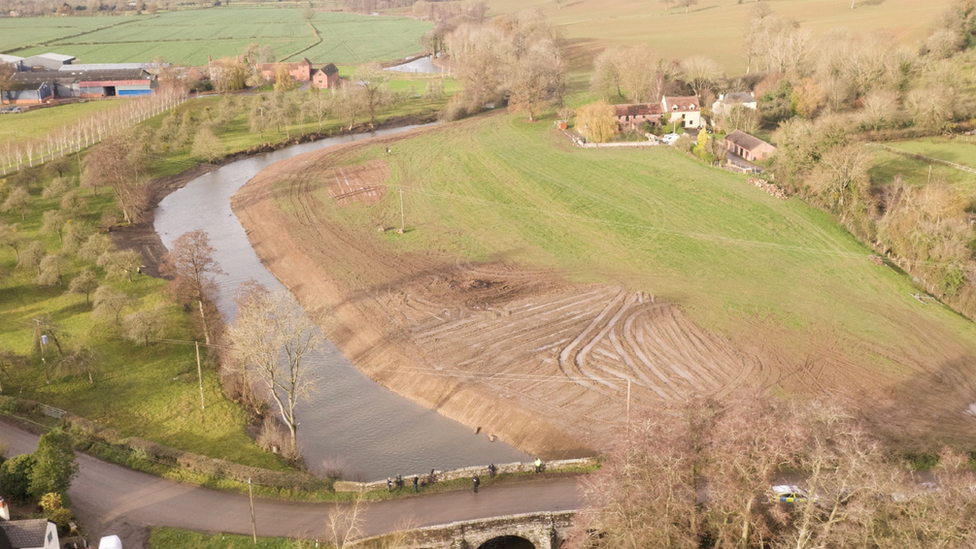
The court heard the River Lugg was one of the best rivers in the UK for salmon and supports many rare water beetle and crane fly species
The court heard Price has ASD (Autism Spectrum Disorder), which can lead him to acting angrily.
The defendant wrongly believed he was trying to help the village and deal with storm damage, Mr Farrer said.
The court previously heard Price removed a copse of trees and used gravel from the River Lugg to build a raised hard-standing area of 65.7ft x 98ft (20m x 30m).
Mr Farrer said his client had started the work in 2019 as he did not like the Leylandii trees and the hard standing area had been built two years later, for his partner to exercise her horses.
He said his reasons for doing it were aesthetic and not to stop flooding.

Follow BBC West Midlands on Facebook, external, Twitter, external and Instagram, external. Send your story ideas to: newsonline.westmidlands@bbc.co.uk, external
- Published18 April 2023
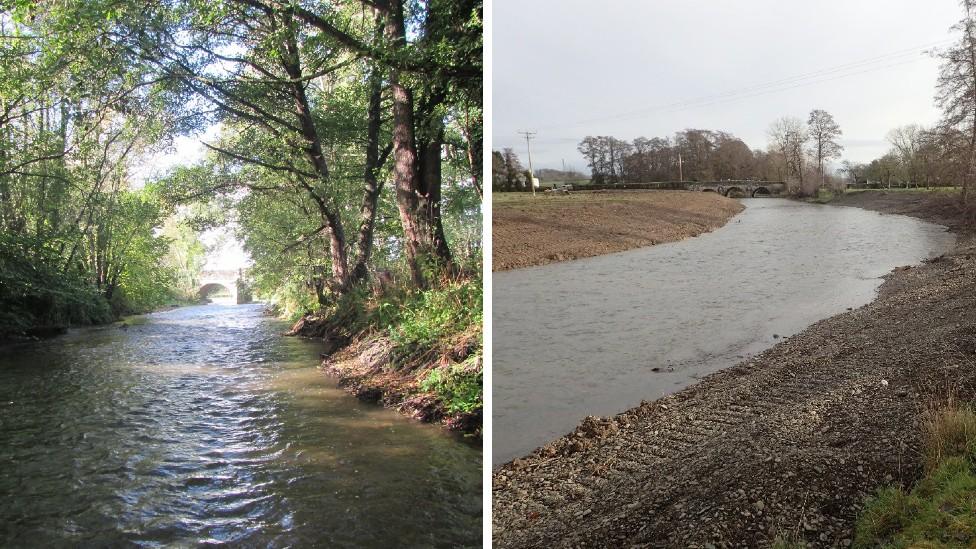
- Published18 May 2022
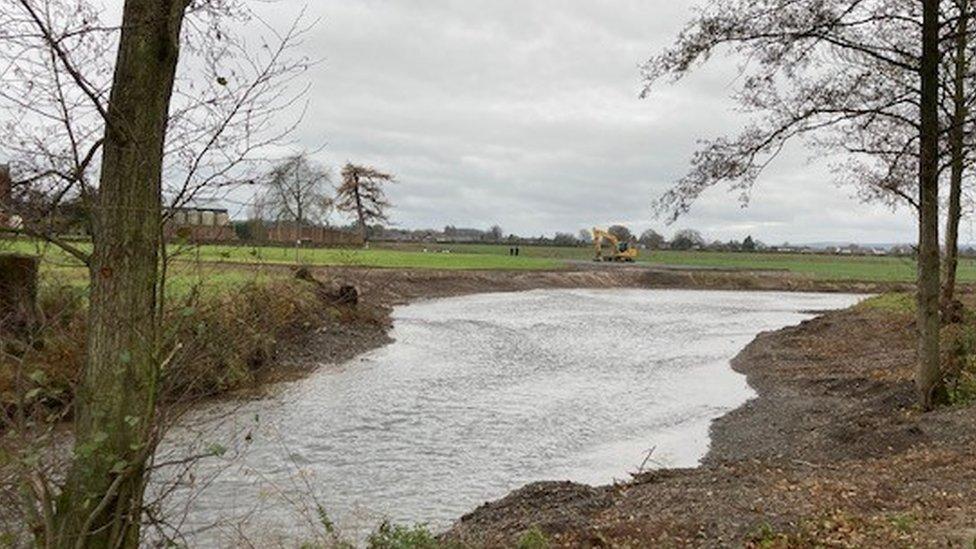
- Published9 March 2022
